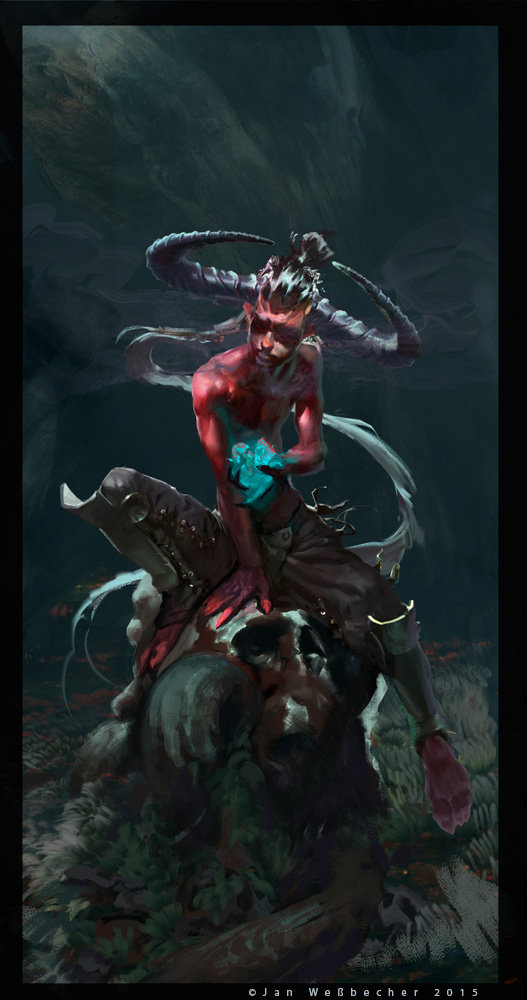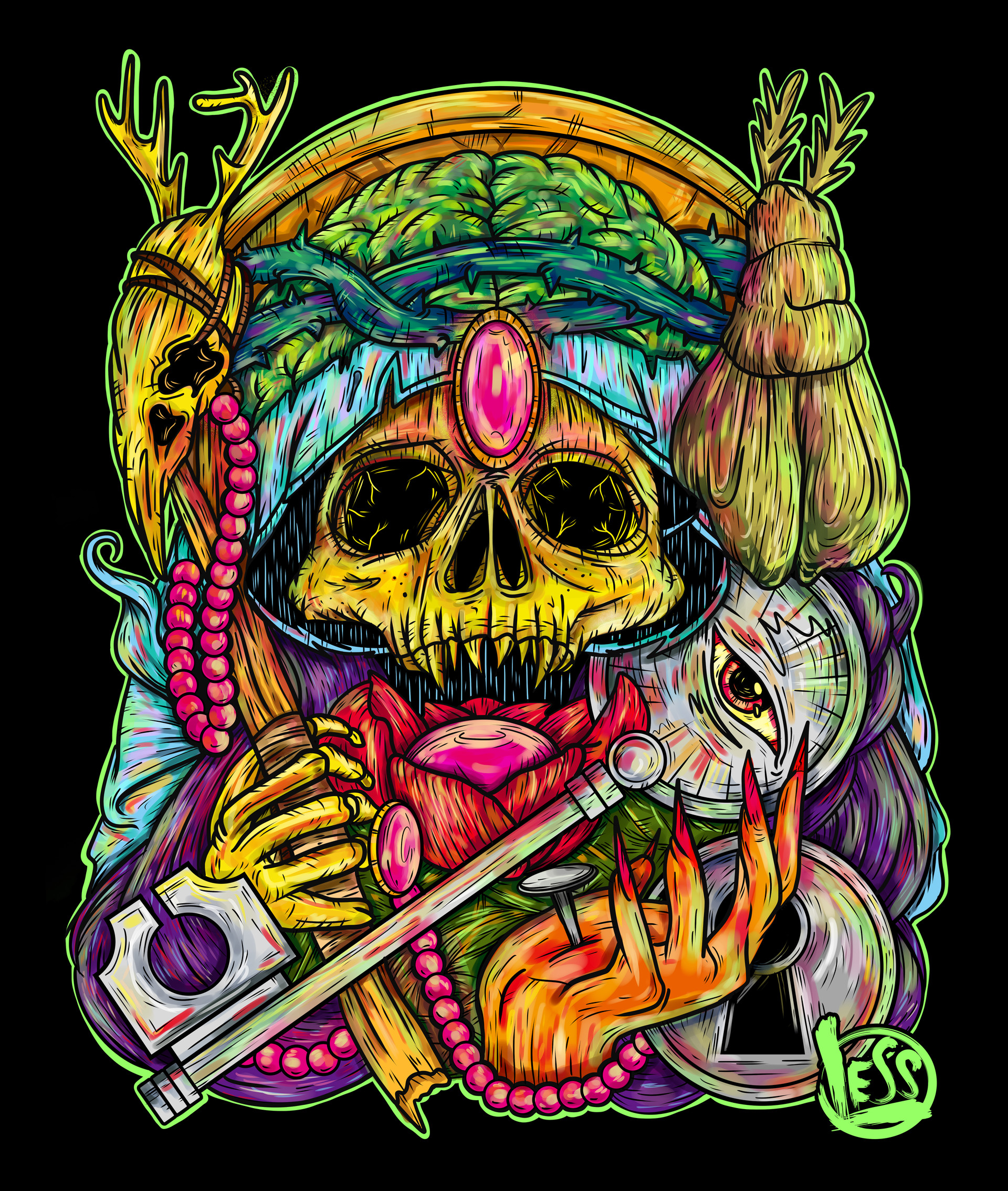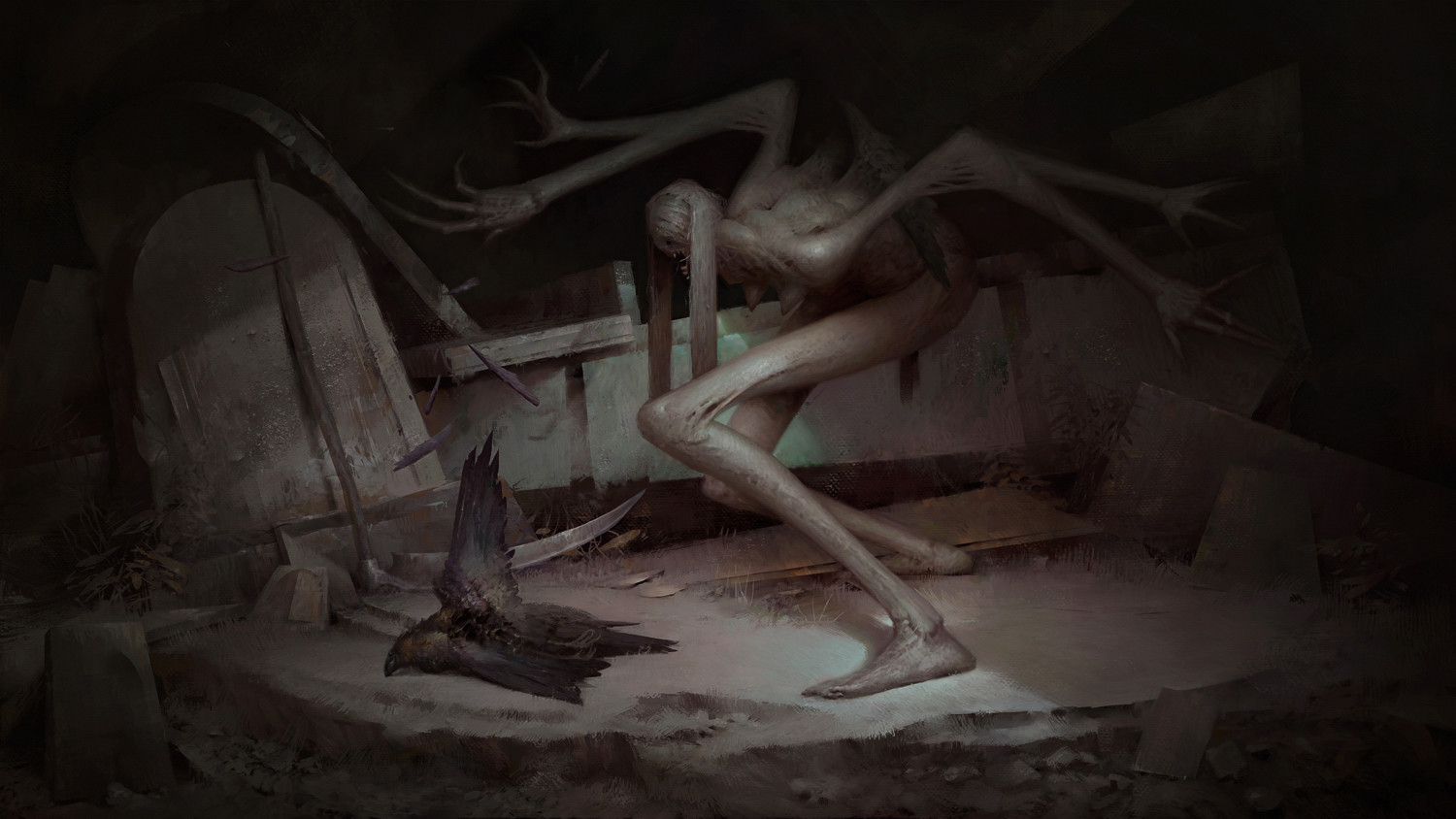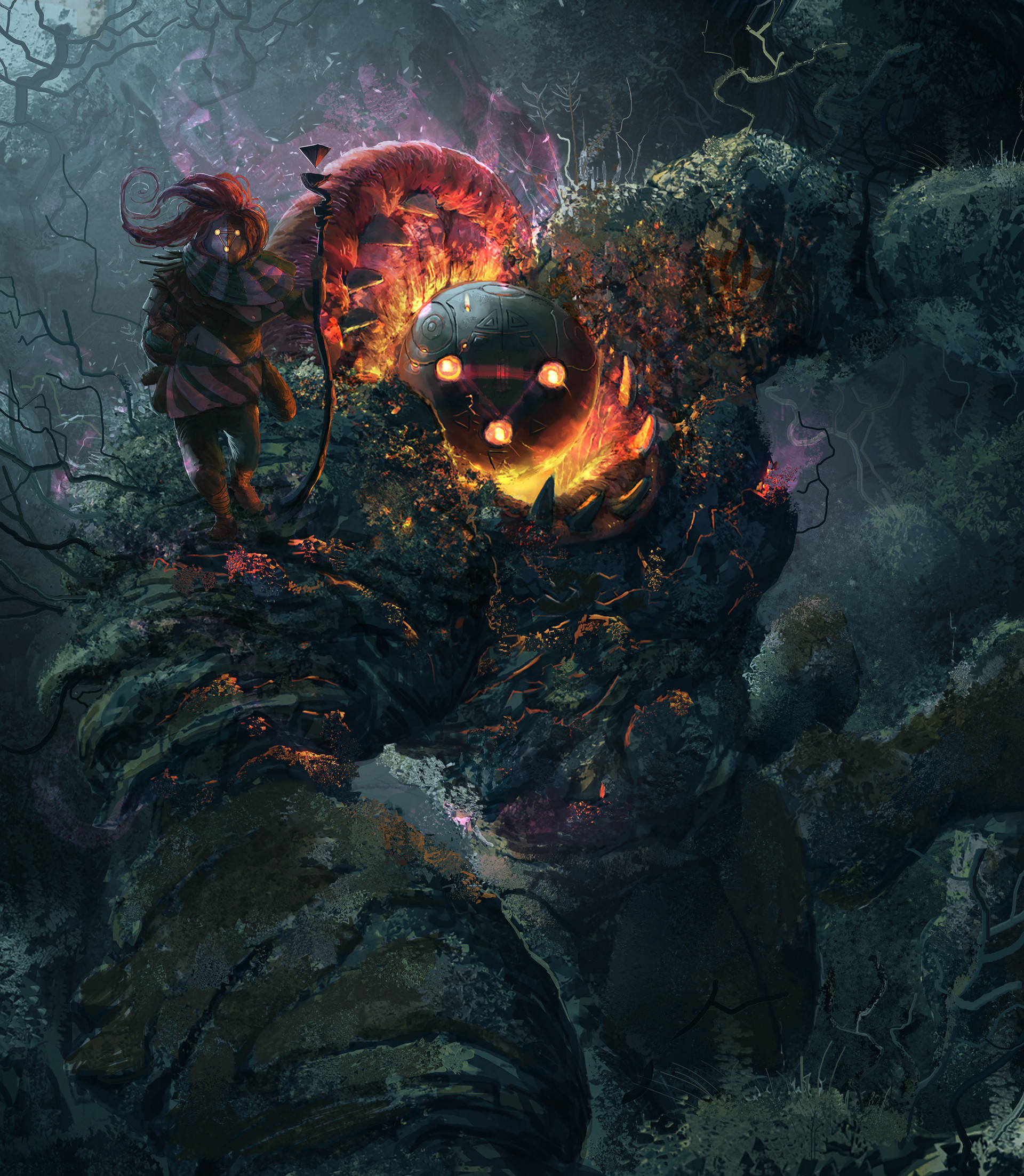In my
previous two posts I developed Occultum "magic" items and Temples, which are cantankerous and finicky versions of classic weapons of mass destruction.
Remnants are simply GLOG rendition of
Fetishes. They haven't been playtested yet, but most of the numbers have been wrangled to one extent or another. Depending on how powerful +1 MD is, I'd modify the level of body horror in the
Overload table to your level of comfort. My gut feeling? Make 'em bleed.
Remnants - Just tape it together, you'll be fine
Occultum is good for everyone, and Temples are a pretty direct route to powerful weapons, but what about wizards? Wands, staves etc. are difficult objects to create, but jury-rigged substitutes can be cobbled together out of mundane objects that have been regularly exposed to magical energies. It takes 1d10 years for organic material and 1d10 decades for inorganic material to reach sufficient saturation, with a spell cast nearby either continuously or every week or so. It can then be used to channel and focus magical energies in place of a fragile, squishy brain, a property all casters will probably appreciate.
Remnants can be used in a few different ways. In the hands of a skilled spellcaster, it can be used to
add 1 MD to a spell as it is cast. It can even be used to grant 1 MD to a non-spellcaster or exhausted wizard, though this is liable to wear out the Remnant even faster. On the flipside, channeling 4+1 MD through a Remnant can pose more than a few risks.
For those feeling exceptionally brave, a spell can be added to a Remnant to allow it to be cast by any mundane plebian. This is a little different to trapping a spell in a scroll. A standard paper book or scroll is a barren, tin cage. An appropriately prepared Remnant would be equivalent to a lush, well-appointed steel vault, which happens to have a cannon attached.
Casting using a Remnant grants 1 MD, and incurs a Break on a 5/6. If cast alongside other MD it incurs a Break if the MD contributed shows a 6, or if a Mishap is rolled. Remnants can withstand 3 Breaks by default, modified below. After that, if it gains another Break, it will... well,
it won’t be good for the caster, that’s for sure! Dooms also result in Breaks equal to the number rolled (triple 2 = 2 Breaks), but that is probably the least of your worries.
This Remnant can withstand three Breaks...
-1 if the object is very small (less than an inventory slot)
+1 if the object requires two hands to carry
+2 if it’s exceptionally large (requires a cart)
+3 if it can’t be moved
-1 if it contains a spell
-2 if it contains more than one spell
You need to roll under Intelligence/2 to learn how to cast using a Remnant under its own steam. You incur a Break if you fail the Intelligence check completely.
+1 for every additional minor Remnant attached
Make an Intelligence check for every attachment beyond the first, a failure incurs a Break instead
+1 if it is cleaned, coddled, caressed or otherwise cared for in an exceptional manner
-1 if it is treated poorly, gets wet or otherwise physically mishandled
Incurs a Break if used as an improvised weapon/shield in combat. Nitwit.
Double the chance of breakage for one hour after you incur a Break. You can reduce this time by cleaning off the char marks with a silk cloth, realigning the chakras, or the equivalent.
Quick reminder:
1. "I'm adding 1 MD to my own MD for this spell" - Incur a Break if the MD shows a 6, or if you roll a Mishap. If you broke something in the last hour, incur a Break for 5 or 6.
2. "I'm out of mana and using the MD on it's own" - Incur a Break if you roll a 5 or 6. If you broke something in the last hour, Break on anything above a 2.
3. "Hur-dur, me want magick shpell" - If there is a spell residing in the Remnant, non-spellcasters must roll under half Intelligence to learn how to activate it. If you fail the Intelligence roll completely, Break something. Once you've figured it out, as #2.
Example:
Phlaturgas the Blue helped a cadre of knights take down the cultists that had been sacrificing babies on the stone table beneath the manor. He pilfered the ancient brazier which had been there for years, next to the rune-scarred summoning circle. It’s large enough that he needs two hands to carry, and he uses the troll earwax he collected ages ago for the candles. It smells foul, but works as a minor Remnant. As such it can withstand 3 +1 (size) +1 (earwax) = 5 Breaks. He convinces his spare Magic Missile to live in it, reducing the cap to 4. If he was trying to get an uppity Flight spell, or Zulin forbid, a Lighting Bolt, he’d probably have to make a blood sacrifice, or even lose a few points from a mental stat for a few days. With the new magic item, his buddy Michael (a Fighter) can cast Magic Missile at 1 MD!
Except its not that simple. Michael has to make an Intelligence check and get under half. He only has 8 Int. He rolls a 6 the first time, which isn’t quite enough, but isn’t a disaster either. Phlaturgas takes Michael into town to find a specialist, who grants a +1 to the check. He rolls 17. Now with only three Breaks remaining, Phlaturgas takes it back, grumbling, and uses it to bolster his own casting ability. Some time later, he rolls a 6 and a Mishap at the same time. Ears ringing, he spots a couple cracks in the metal frame of the brazier.
He better not use this one for now… but of course he will, because what kind of wizard wouldn't trade safety for power?














